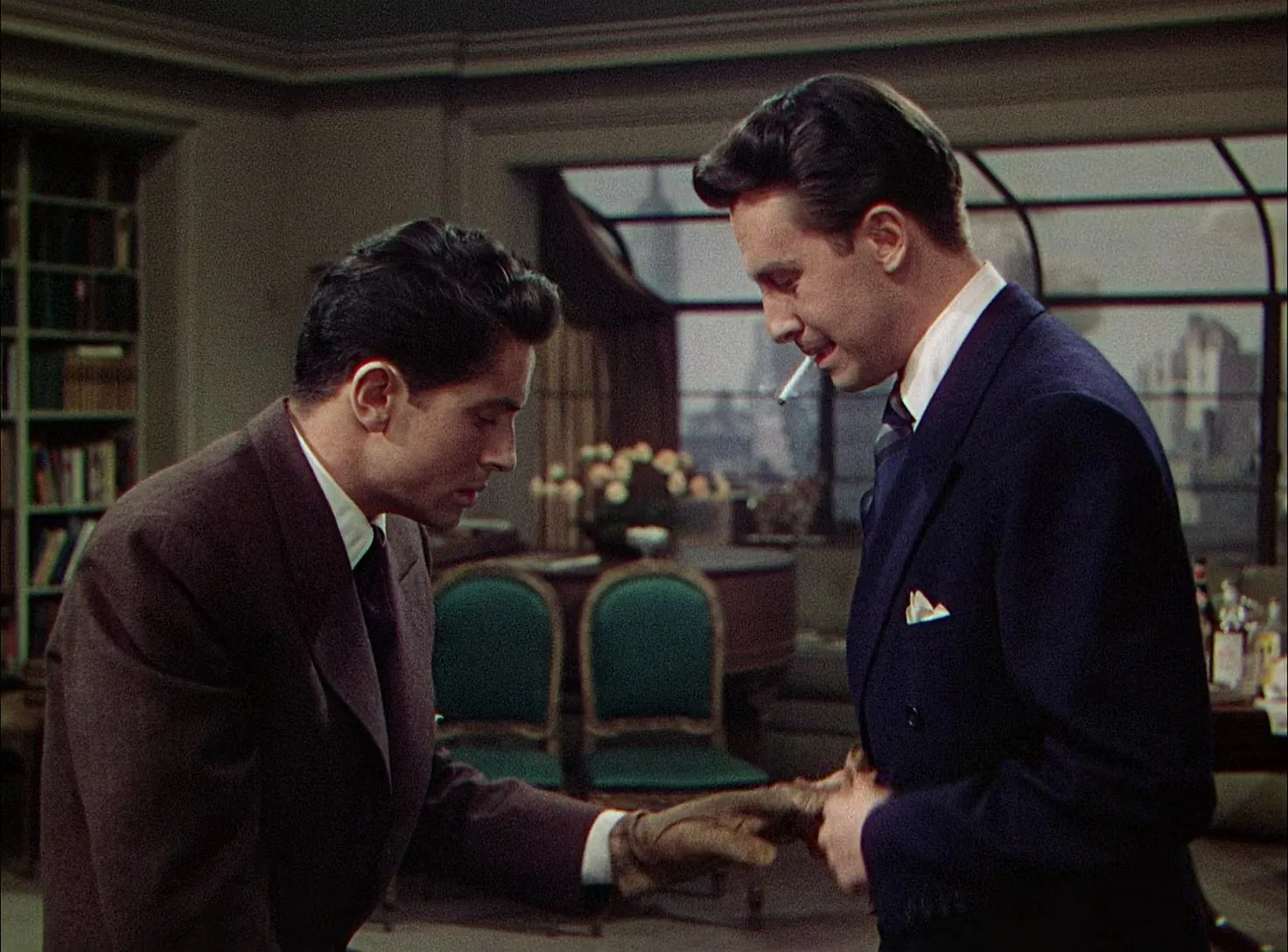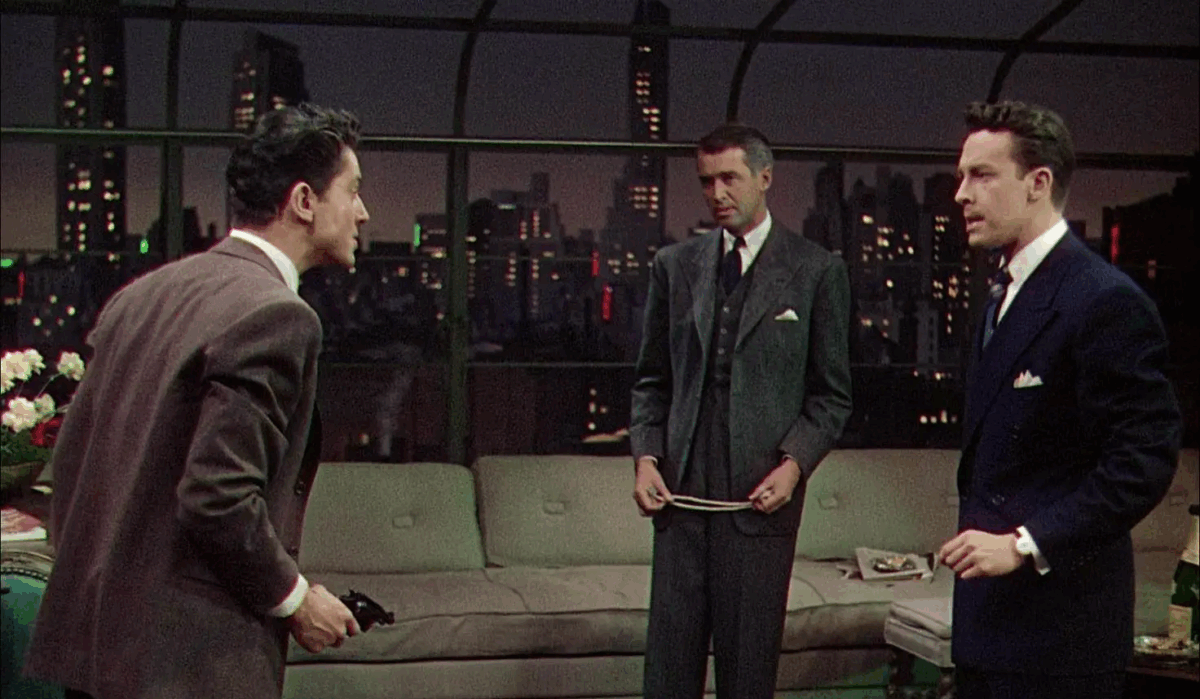I have a rule of thumb that Alfred Hitchcock movies must be watched twice to be properly appreciated. His films are typically much more about how you get there than the destination itself, though plenty of his films have terrific endings. Still, I can’t think of any of his films I’ve been less fond of a second time through. (Although… now that I think about it, I mostly watch movies I already like and expect to like more upon rewatch, so my hit rate for liking movies more is probably 80%+.)
Thus, I felt a little bit of an itch when I wrote my review of Rope earlier this year. Even though I put a lot of thought into what I wanted to say about the movie, was I really properly steeped in it? Had I let it sit and develop?
It turns out those instincts were right. Half a year and a Hitchcoctober rewatch later, I’m higher on Rope than I first was. Let’s take a look at what my concerns were the first time through:
- What I thought: Jimmy Stewart is poorly cast and inadequate
I still think his casting is unintuitive, the contrast in his natural demeanor with the edgy written material not so sharply defined as in Vertigo and Rear Window. But I now see this not as a flaw but as something that deepens the character of Rupert and interrogates the way he espouses but doesn’t live out crypto-fascist beliefs and impulses.
- What I thought: The filming is too stagey and proscenium-bound
I see this totally differently now. Although this limitation is built into the structure, Hitchcock completely controls and weaponizes it, directing our gaze and putting us in the perspective of the two killers and their awful secret shame.
- What I thought: The real-time, no-cuts structure prevents Hitchcock from applying his masterful expansion and contraction of space and time via montage-style editing
This defines, to me, Rope‘s ceiling, and Hitchcock himself agreed. In his interview with Francois Truffaut in the essential Truffaut-Hitchcock book, he describes the frustration of not being able to apply his editing techniques, though he still aimed for achieving similar effects with the “pure cinema” of long takes and real-time storytelling. (Although he spent most of the Rope portion of the interview talking a lot about the trickiness of lighting in color for the first time and the annoyance of discarding whole days worth of filming when the sunset lighting didn’t come out right.)

In that Truffaut interview and other later retrospectives, Hitchcock described Rope as an experiment that he doesn’t blame himself for trying but that he felt was ultimately compromised as a final product. I agree a bit, but I ultimately feel Htichcock undersells the film. He created a sinister, spring-loaded trap with rich and disturbing psychology injected into the audience by way of the anti-hero deuteragonists’ philosophical and sexual neuroses.
I stand by most of my initial thoughts on the film, but I’ve rewritten a couple of paragraphs in my review of Rope to be more appreciative of the film’s overall effect, which I do feel is something special.
Previous Rating
Very Good (6/8)
Updated Rating
Exceptionally Good (7/8)
Related Articles
Dan is the founder and head critic of The Goods. Follow Dan on Letterboxd. Join the Discord for updates and discussion.

